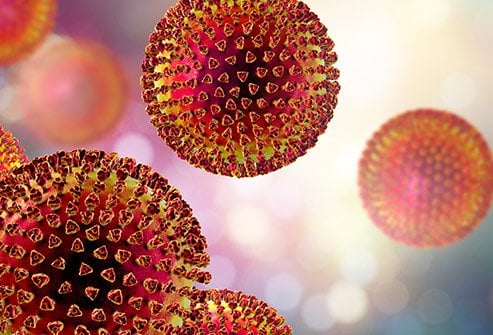The Ghana Medical Association (GMA) says 14 Lassa Fever cases have so far been confirmed in the country.
Those affected include some doctors and other health workers exposed in their line of duty.
The GMA in a statement issued Wednesday, said while it acknowledges measures being put in place to trace their contacts and contain the virus from spreading further, it is also “facilitating the provision of psychological support to the colleagues confirmed with the disease,” and counselled the public to take precautionary measures.
“The virus spreads to humans through contact with food or household items contaminated with the urine or faeces of mice. It also spreads from one person to the other through direct contact with bodily fluids e.g. urine, blood, faeces or contaminated clothes and beddings of an infected person.
“This risk of spread among health professionals is high when infection prevention and control (IPC) protocols are not adhered to during the care of patients.”
Symptoms of Lassa Fever
Most people infected with the virus may present with mild symptoms or may be asymptomatic.
The early symptoms of Lassa fever are non-specific and usually includes fever, general malaise, weakness, and headache.
Other symptoms may include sore throat, muscle pain, chest pain, nausea, vomiting, diarrhoea, cough, and abdominal pain.
Severe cases may present with bleeding from the mouth, nose, vagina or stomach.
Treatment
According to the GMA, while no vaccine currently offers protection against Lassa Fever, Ribavirin offers good outcomes especially when given early along with other supportive management.
“The GMA is engaging the government to fast-track the mobilization of the drug to ensure its availability for the management of patients.”
Adherence to IPC protocols
The GMA advised its members to adhere strictly to IPC protocols especially regarding the use of PPEs at all times and ensure all other members of the care team do same, particularly in wearing of facemasks at all times at work, frequent hand washing or use of hand sanitisers, use of gloves and avoidance of contact with bodily fluids.
“Members are also urged to have a high index of suspicion for individuals presenting with the signs and symptoms outlined above.”
Latest Stories
-
Victoria Hamah: NDC politician sacked for merely wishing for $1m begs for Sammy Gyamfi
2 seconds -
Sung Biela Foundation Ghana celebrates mother’s day with support for 40 single mothers, widows in Bawku
6 minutes -
UNDP and NIC launch inclusive insurance innovation challenge to boost financial resilience in Ghana
8 minutes -
3 suspected robbers arrested for terrorising residents of Kenyasi and environs
9 minutes -
34 arrested in crackdown on illicit drug hub ‘Thinka Island’ in A/R
20 minutes -
Equation Gonja drops ‘Mantindi’ street anthem
43 minutes -
38-year-old man gets life imprisonment for killing Assemblies of God pastor in 2018
58 minutes -
From Shack to Sanctuary: Rotary builds state-of-the-art healthcare facility in Berekuso
1 hour -
‘Unite for Good’: Rotary International President-elect calls on Rotarians to be a force for unity
1 hour -
Free speech has limits in national security matters – Law professor weighs in on Adu-Boahene’s trial
1 hour -
DVLA gives 2-week deadline to register all excavators or face seizure
1 hour -
Ghana’s FreezeLink gains international acclaim as Bloomberg recognises innovative Agri and Pharma solutions
1 hour -
Garden City University College graduates cohort of Midwifery Research Studies
2 hours -
“We don’t want our AG playing in the mud” – Nana B slams Dr Ayine over A Plus bribery claims
2 hours -
FAGE president calls for targeted policy to support export, agribusiness
2 hours

